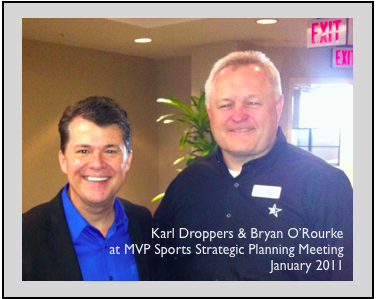An Important Secret About The Competitive Health Club And Fitness Industry
/
I know , please don't give me a hard time about it. I just keep trying to make sure you're paying attention to what is REALLY going on out there in this great big world of ours. Admittedly its hard, when our heads are down and we are slugging away at obstacles and opportunities everyday. But things have changed, really changed. So please think about this the next time you sit down to evaluate your business, your profession and our industry. You see the way we think has got to change if we are to remain relevant.
I've mentioned Rita Mcgrathbefore . As one of the leading thinkers in global innovation, Rita is now coming out with a new and compelling book titled, The End of Competitve Advantage, How To Keep Your Strategy Moving As Fast As Your Business. in this book lies some secrets for us to use when it comes to our future. Here's and excerpt from the book:
Are you at risk of being trapped in an uncompetitive business?
Chances are the strategies that worked well for you even a few years ago no longer deliver the results you need. Dramatic changes in business have unearthed a major gap between traditional approaches to strategy and the way the real world works now. In short, strategy is stuck. Most leaders are using frameworks that were designed for a different era of business and based on a single dominant idea—that the purpose of strategy is to achieve a sustainable competitive advantage. Once the premise on which all strategies were built, this idea is increasingly irrelevant.
As with other industries this is the predominant thinking embraced by leadership in the health club and fitness industry today . Failing to collaborate and the myopic view that competition is primarily derived from others within our space is flawed thinking. As with other industries, increasingly competition is going to come from other industries. We need to change how we think. Otherwise many will likely fail and be left to their demise in a wake of denial. Opening our eyes to Rita's view point is an excellent tonic for us to take as we examine the reality of many of our businesses today. I hope you will find this thinking helpful.
Check out Rita's brief video below as she explains the concepts behind the End of Competitive Advantage and please let me, Bryan O'Rourke, know what you think about her views.
About the author:
Bryan O’Rourke is a health club industry expert, technologist, financier, shareholder and executive in several fitness companies. He works for Fitmarc, which delivers Les Mills programs to over 700 facilities in the US. He advises successful global brands, serves as a member of the GGFA Think Tank and serves as CEO of the Fitness Industry Technology Council. To join FIT-C visit www.fit-c.org . To learn more contact Bryan here today .









